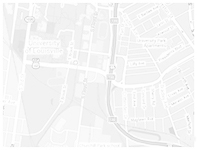Informational Interviews
Do you know which career path you want to pursue? Talk with somebody who is currently employed in that field to gain a better understanding about the career and what it entails. This occurs during what is called an “information interview”, which is a method of obtaining information and guidance from an experienced worker in the field you exhibit interest in.
Here are just a few reasons to conduct an interview of your own.
- To gain understanding and awareness about a particular career, industry, or field.
- To learn the specifics about the career you are pursuing, which may not be commonly known to other job seekers.
- To acquire professional contact(s) that may assist you in your future job search.
- To assist you a) during preparation for interviews and b) how to best answer the questions you will likely encounter.
- To gather information firsthand from experienced people in the field about how to prepare for the career you desire.
How do you go about conducting an interview? Follow these simple steps.
- Gather your contact information. Once you decide which career you are interested in, make a comprehensive inventory of contacts you wish to speak with. Make a note of anyone who has mentored you in the past or who may have a large network of connections, as they may be able to refer you to someone else who may be able to offer help. Also research the company you would like to work for and find someone who is currently working there; that person would be able to offer unparalleled information.
- Find them on a professional networking platform such as LinkedIn. Many professionals use this networking site today. Most of their contact information should be listed on their profile. If not, send them a brief message (see step 3) explaining your intentions.
- Initiate the connection and communicate with them. Do not be afraid of reaching out to a potential contact. Persistence is essential when initiating contact. When introducing yourself, make sure to convey your interest in holding a short meeting to learn more about the specific career/field/industry. If a phone call is not returned or your e-mail goes unanswered, try another method of communication.
Be prepared and bring several copies of your resume. Do not present your resume to your contact right away, but do have it on hand in case the interviewee asks for it. He or she may have helpful connections in his/her network that may help you during your job search. In any case, they may be able to offer you personalized advice on how to improve your resume to appeal to employers in the field you are pursuing.
Think of questions to ask beforehand. Inquire about the career/industry/field you are interested in.
Be prepared to offer your branded “elevator pitch”. This is your chance to promote yourself, your skills, strengths, experience, accomplishments, as well as professional ambitions and goals. The pitch itself should be very brief, about 30 seconds to one or two minutes (or the length of time it takes to ride in an elevator, for which the speech is named). Highlight your area of interest, your skillset, any specific knowledge you possess, and level of education. Also talk about your past and current experience across different areas, as well as the amount and level of experience you have. Emphasize your strengths in regards to your skills and your character, and do not be afraid about discussing your biggest accomplishments to date (which can also include awards or accolades you have earned). Do not forget to mention your long-term career goals.
Analyze the interview once it is finished. Take a moment after the meeting to go over what was or was not discussed.Did you receive the answers to critical questions? Did you think of any questions after the interview ended? Would you like to interview another contact to acquire another opinion? Did you leave anything out that you would have liked to ask the interviewee?
Always thank the person afterwards. It is absolutely crucial to follow up with the person within 24 hours to thank them for lending you their time, guidance, and wisdom. Handwritten notes and typed e-mails are both suitable. The method is up to you- just make sure to do it.
Keep a record of every informational interview you conduct. Make sure to keep contact information, dates, and any notes you took.

